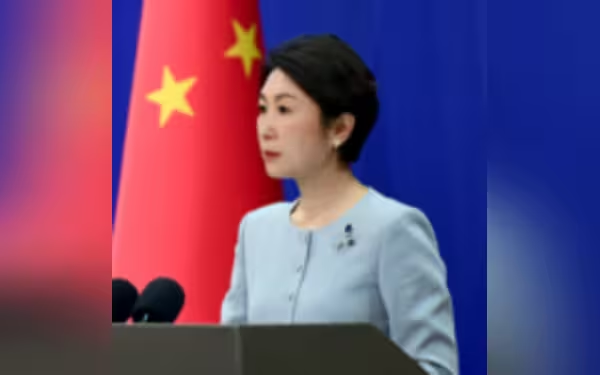Saturday, November 16, 2024 07:23 PM
China Warns U.S. Against Supporting Taiwan Independence
- China criticizes U.S. for sending wrong signals.
- Military drills conducted to deter Taiwan independence.
- Taiwan viewed as integral part of China.
 Image Credits: pakistantoday
Image Credits: pakistantodayChina urges the U.S. to avoid supporting Taiwan independence amid rising tensions.
In recent developments, tensions between China and the United States have escalated over the sensitive issue of Taiwan. The U.S. has been criticized by China for allegedly sending 'wrong signals' to forces advocating for 'Taiwan independence.' This situation is rooted in the long-standing one-China principle, which asserts that there is only one China and Taiwan is part of it. The U.S. has historically maintained a delicate balance in its relations with Taiwan, often supporting its democratic governance while also recognizing the one-China policy.
On Monday, Mao Ning, the spokesperson for the Chinese Foreign Ministry, emphasized that if the U.S. genuinely values peace and stability in the Taiwan Straits, it must adhere to the one-China principle and the three joint communiques established between China and the U.S. These agreements are crucial in maintaining diplomatic relations and preventing misunderstandings that could lead to conflict.
In a show of military readiness, the Eastern Theater Command of the People's Liberation Army (PLA) conducted 'Joint Sword-2024B' drills in the Taiwan Straits and surrounding areas. These exercises involved various branches of the military, including the army, navy, air force, and rocket force. Mao responded to U.S. State Department comments regarding these drills, asserting that they serve as a powerful deterrent against 'Taiwan independence' activities and are necessary for safeguarding China's national sovereignty.
Mao further stated that the concepts of 'Taiwan independence' and cross-Straits peace are fundamentally incompatible, likening them to 'fire and water.' She warned that provocations from 'Taiwan independence' forces would be met with countermeasures, reinforcing China's commitment to maintaining peace and stability in the region.
It is important to note that Taiwan is viewed by China as an integral part of its territory, and the Taiwan question is considered a domestic issue that does not allow for foreign interference. This perspective is a significant aspect of China's national identity and political stance.
As the situation continues to unfold, it is crucial for all parties involved to approach the matter with caution and a commitment to dialogue. The stakes are high, and the potential for conflict remains a pressing concern for not only China and the U.S. but also for the broader international community. Understanding the complexities of this issue is essential for fostering peace and stability in the region.













